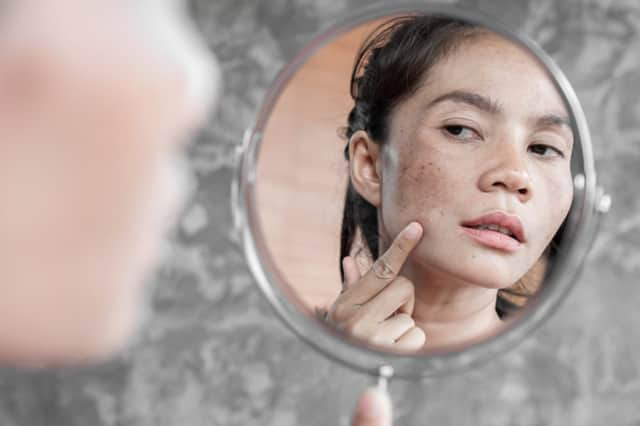Here’s how to help your skin fight back if wearing a face mask is giving you spots
This article contains affiliate links. We may earn a small commission on items purchased through this article, but that does not affect our editorial judgement.


Wearing a face mask to visit the shops or catch a train is now a part of everyday life.
But, if your skin is struggling due to face coverings and wearing one is causing flare ups of acne or an influx of new spots, don’t despair.
Advertisement
Hide AdAdvertisement
Hide AdThere are certain vitamins that you can take, alongside nutritional tips that can help your skin fight back against spots, according to Shona Wilkinson, head medical advisor at multivitamin supplement company, Feel.
Diet and acne
Our daily diet and nutritional intake can have more of an impact on skin health than we may think.
“Good nutrition is the best way to keep your skin healthy and clear for your entire life,” explains Ms Wilkinson.
The medical advisor says “you are what you absorb”, and that treating acne at the root of the source by improving your nutrition can have a positive impact on both your skin’shealth and appearance.
Advertisement
Hide AdAdvertisement
Hide AdAcne symptoms include spots on your face, back and chest, oily skin andsometimes skin that is hot or painful to touch.
“An acne outbreak occurs when one or more sebaceous glands in your skin become clogged with hardened fat plugs called comedones,” adds Ms Wilkinson.
“Acne is a bugbear that can strike at any age or during any season,” says Ms Wilkinson, explaining that face masks can also cause “unwanted breakouts.”
Alongside this, a rise in temperatures and increased exposure to the sun’s UV rays may lead to skin dehydration and dryness, both of which can then cause the skin to produce more sebum.
Vitamins and minerals to help clear your skin
Advertisement
Hide AdAdvertisement
Hide AdVitamins and minerals can also play a part in improving and protecting your skin’s overall health.
Vitamin A
Vitamin A can help to keep your skin hydrated, with dry skin being one of the main causes ofacne, so keeping your face healthy and moisturised will help prevent this condition.
Vitamin E
Vitamin E is one of the major dietary antioxidants, and “its impact on dermatologicalhealth is reasonably well researched.”
Vitamin B3
Vitamin B3 may be helpful for acne due to its ability to work as an anti-inflammatory, explains Ms Wilkinson.
Advertisement
Hide AdAdvertisement
Hide Ad“It can help reduce the inflammation caused by spots and over time you will see fewer lesions which will result in improved skin texture,” she adds.
Zinc
Zinc is an important nutrient for the skin. It plays a role in building keratin and collagen which“helps maintain good skin integrity.” It also has anti-inflammatory properties and helpsclear bacteria from the skin and help to reduce oil production.
A combination of zinc in a multivitamin and mineral supplement, as well as a topical product containing zinc, have both been found to be beneficial in the fight against acne.